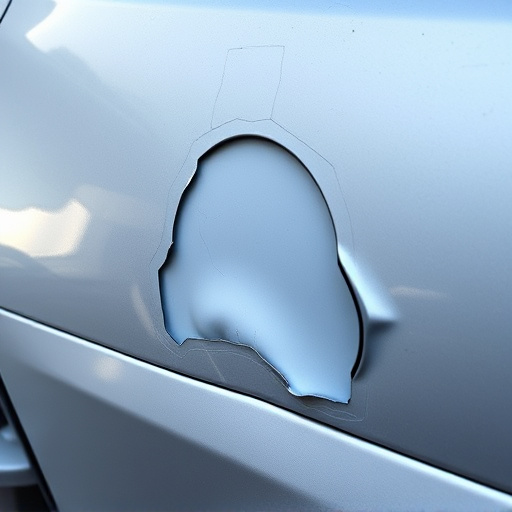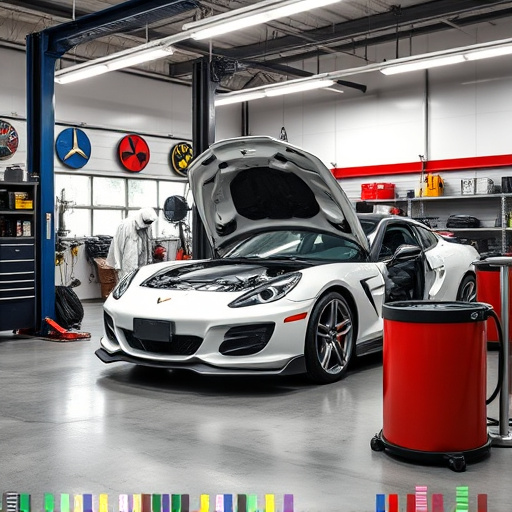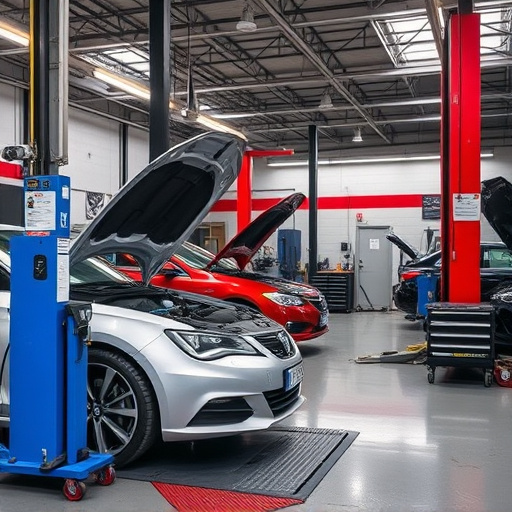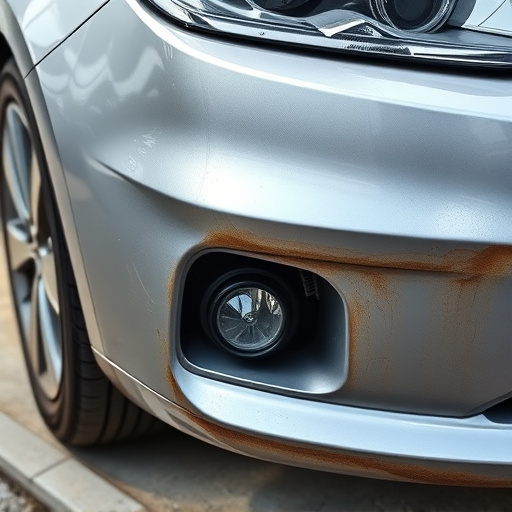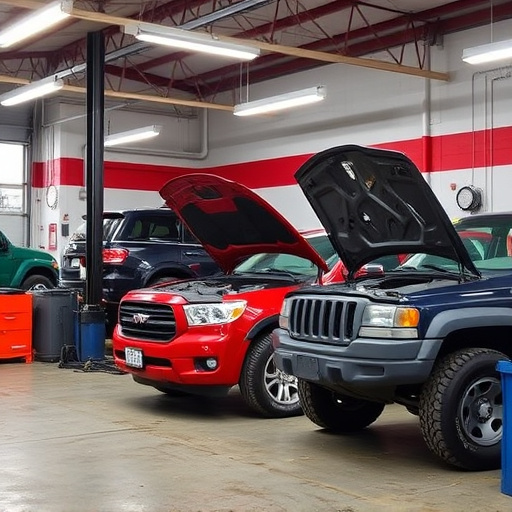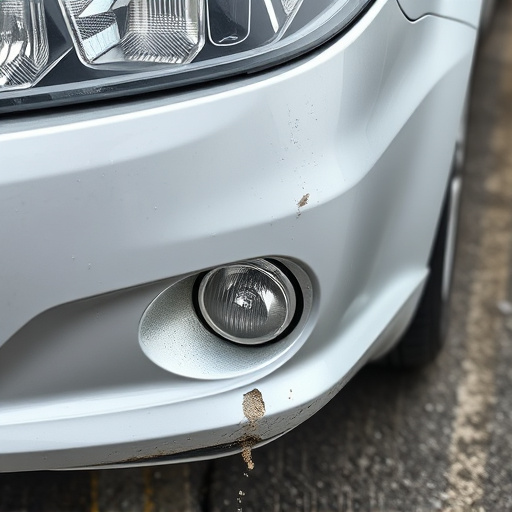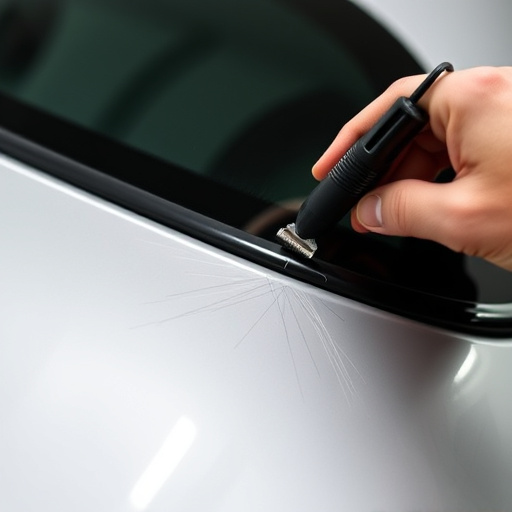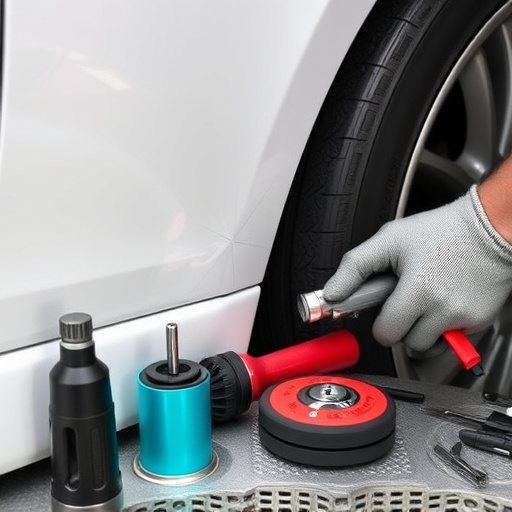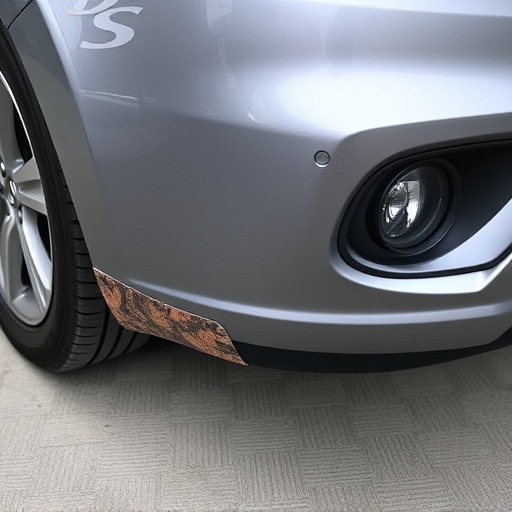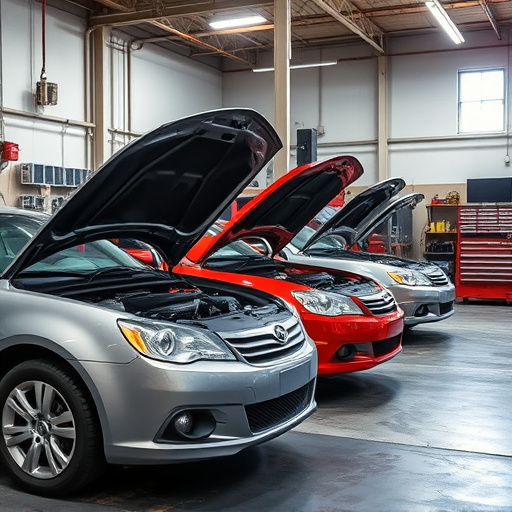Mercedes glass sensor calibration is essential for Advanced Driver Assistance Systems (ADAS) safety and efficiency. Misalignment or damage can lead to false signals, compromising ADAS effectiveness. Professional repair shops offer specialized services to recalibrate sensors after hail damage or other incidents, ensuring reliable performance of critical driving systems. Regular inspections at reputable shops enhance ADAS functionality, preventing collisions and costly repairs.
Mercedes glass sensor calibration is a critical aspect of maintaining optimal Advanced Driver Assistance Systems (ADAS) functionality in modern vehicles. Accurate calibration ensures that sensors, cameras, and radars work in harmony to provide safety features like lane-keeping assist, adaptive cruise control, and collision avoidance. In this article, we’ll explore the significance of Mercedes glass sensor calibration, its impact on ADAS performance, and practical steps to ensure optimal functionality in your Mercedes vehicle.
- Understanding Mercedes Glass Sensor Calibration
- Impact of Accurate Calibration on Advanced Driver Assistance Systems (ADAS)
- Practical Steps for Optimal ADAS Functionality in Mercedes Vehicles
Understanding Mercedes Glass Sensor Calibration
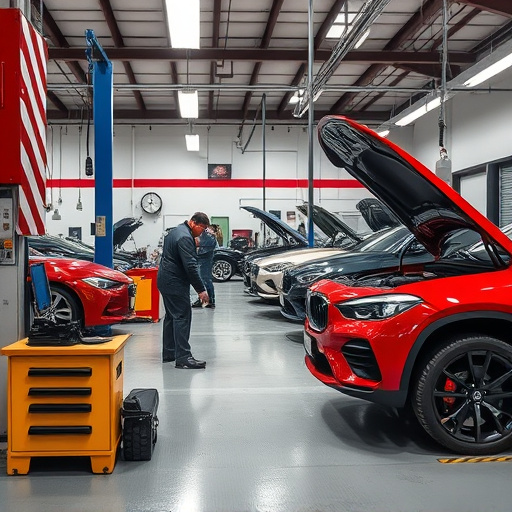
Mercedes glass sensor calibration is a critical process that ensures the optimal performance and safety of Advanced Driver Assistance Systems (ADAS). These sensors, found in modern Mercedes vehicles, play a pivotal role in various safety features like Automatic Emergency Braking, Lane Keeping Assist, and Blind Spot Monitoring. Proper calibration guarantees these systems operate with precision, making driving safer.
Just like a well-tuned orchestra relies on precise timing for harmony, ADAS functions rely on accurate sensor readings. Any misalignment or damage to the glass sensors can lead to false signals, impacting the overall effectiveness of these safety nets. That’s where professional hail damage repair and auto body shops come in, offering specialized services to recalibrate these sensors after any incident that may cause car damage, ensuring your Mercedes’ ADAS remains a reliable guardian on the road.
Impact of Accurate Calibration on Advanced Driver Assistance Systems (ADAS)
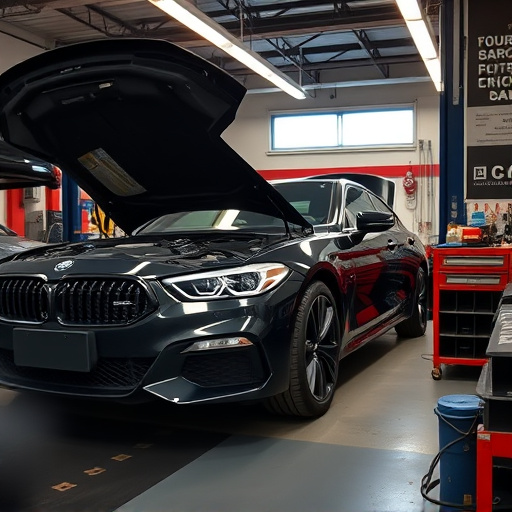
Accurate Mercedes glass sensor calibration is paramount for the optimal performance of Advanced Driver Assistance Systems (ADAS). These systems rely on precise data from sensors to enable features like adaptive cruise control, lane-keeping assist, and automatic emergency braking. Even a slight miscalibration can lead to false readings, compromising safety and affecting the overall effectiveness of these life-saving technologies.
Proper calibration ensures that the glass sensors accurately detect changes in light conditions, providing consistent data input to ADAS components. This is crucial for smooth operation and reliable decision-making by the vehicle’s computer systems. When seeking auto repair services, specifically focusing on calibration for car bodywork sensors, choosing a reputable shop with experienced technicians can significantly enhance safety and drive assurance.
Practical Steps for Optimal ADAS Functionality in Mercedes Vehicles
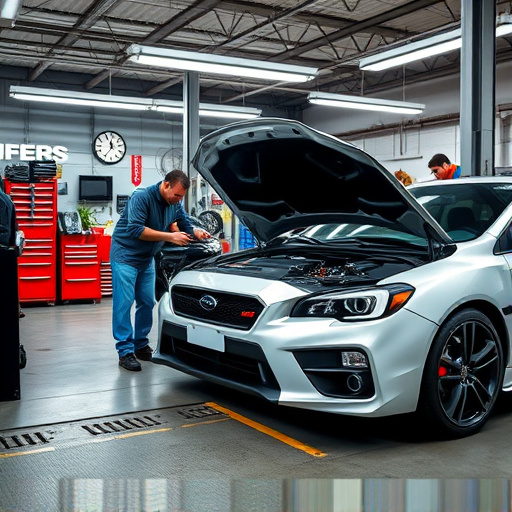
For optimal ADAS (Advanced Driver Assistance Systems) functionality in Mercedes vehicles, regular Mercedes glass sensor calibration is a practical step that can’t be overlooked. Begin by ensuring your vehicle’s sensors are clean and free from any debris or contamination, as even tiny particles like dust or bugs can impact accuracy. Next, use specialized tools to perform the calibration process, which involves adjusting the sensor’s parameters to match the specific curvature and characteristics of the windshield. This ensures precise detection of lane markings, obstacles, and other vehicles, thereby enhancing safety features like adaptive cruise control and lane-keeping assist.
Additionally, schedule routine inspections at a reputable vehicle body shop or auto repair shop to verify that all ADAS components are functioning optimally. These shops often have advanced diagnostic tools that can pinpoint issues with sensors, cameras, and radar systems, enabling timely repairs before they escalate into more serious problems. Remember, maintaining peak ADAS performance is crucial not just for the smooth operation of your Mercedes but also for preventing potential car collision repair costs down the line.
Mercedes glass sensor calibration is a critical aspect of ensuring optimal Advanced Driver Assistance Systems (ADAS) functionality. Accurate calibration enhances safety by enabling features like adaptive cruise control, lane keeping assist, and automatic emergency braking to function seamlessly. By following practical steps outlined in this article, owners of Mercedes vehicles can maintain top-tier ADAS performance, ultimately contributing to a safer driving experience.
